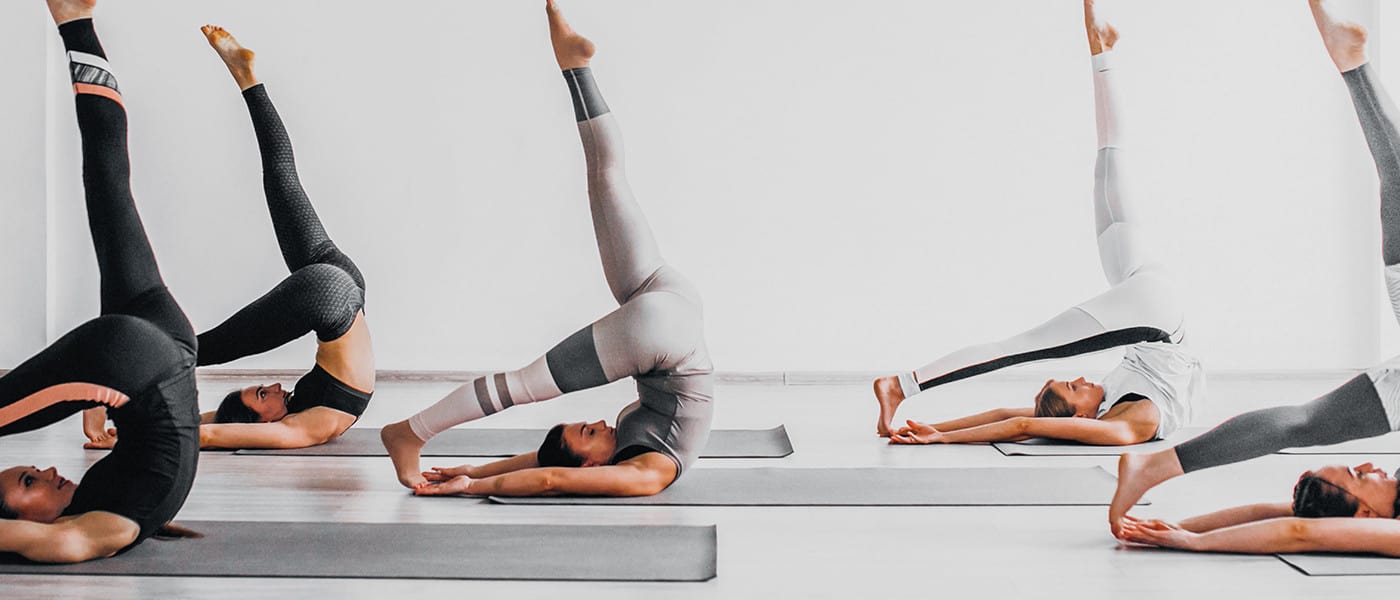the community of yoga

There is a wonderful word in Sanskrit—“kula”— which means community. In a yoga class, we have a deep inner experience of body, breath, spirit, and at the same time we are in a room with others; we practice in community.
As a teacher, I have observed that individual people have particular energies on any given day, but the community as a whole also has an energetic vibe. The class could be tired, silly, friendly, internal. Whatever we start with, there is always the possibility for energetic and physical transformation and shift. We support one another, without words, with our presence.
I have always loved being a student in a big class because I find such beauty and support in a group of yogis moving in unison. I always find that I can do things in class that I believe I can’t do at home. This happens because I feel at home in my yoga community, I practice among people with whom I feel lifted up, I am inspired.
Our yoga kula is the place we choose to practice, and also the place toward which we contribute our own energy and inspiration. Because energy is fluid and free, we can affect the person on the mat next to us. A friendly word, a welcoming smile can make all the difference in someone’s day. We are all so skilled and practiced at looking for the negative, at suspicion, hostility and selfishness. Our yoga kula is a place where we can intentionally practice finding a sense of possibility, giving people the benefit of the doubt, not rushing to defensive conclusions or making choices that increase isolation. This takes courage.
Someone recently told me a story that Michael Franti, a musician and singer, tells. He says that giving someone a bouquet of roses is thoughtful but a little predictable. But giving someone a bouquet of many different flowers is so much more interesting and enlivening.
Our yoga community is like that bouquet of many flowers—each of us a vessel of spirit. The beautiful diversity of human form can remind us of the unity we all share, the mysterious coming into life that we all experience, and our common struggles with being human. As the mystics say, there are many colors to the rainbow, but only one light.
One of my favorite spiritual teachers, Pema Chodron, reminds us to develop an attitude of basic goodness toward others. That is, instead of assuming the worst about a person, instead of assuming that they are basically bad, practice giving them space. This attitude
of assuming that others are basically good is contagious—we can help our friends short-circuit their fearful demeaning of others.
I have a vision that yoga people could become examples of emotional and spiritual balance for this struggling world. It’s up to us to decide how the yoga tradition will live in the West and how it will carry on. Ideas and beliefs matter a lot. Which ideas and beliefs are you
basing your life and actions on?
Yoga, ultimately, is a set of practices that supports our deepest beliefs. May we always uplift each other, may we become supremely skillful at looking for the good in this complicated and unpredictable world. May our yoga kula be a home, a sanctuary, and a place of welcoming embrace.
Read next >> Interview with Duncan Wong